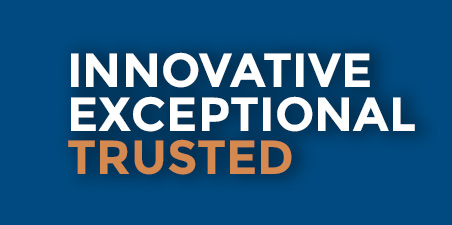KRA operates the PGWorks Employment and Training Program—for jobseekers applying for TCA/TANF benefits—for the Prince George’s County (PGC) Department of Social Services The Subject line read: The Hope Given. Melody Daniel, Program Manager, and Candi Rawls, Career Agent, opened their inboxes to find a message from Mark Shepard that began, “I am reaching out concerning the KRA Job Service team…whose interactions with me were patient, kind, understanding, and provided the information I needed to proceed toward achieving my goals.” Mark, 48, had worked as a Director of Operations/Supervising Chief Engineer until a COVID-19 lay-off. With no income, and UI benefits denied because he
Read More
Archives for Workforce & Government
Maryland Comptroller Thanks KRA Program Director for Contribution to Economic Recovery During Pandemic
Recently, Peter Franchot, Maryland Comptroller, thanked William McIntyre, “for participating in the Greater Washington Board of Trade’s virtual conversation…regarding the impact the COVID-19 pandemic has had on our society. The impact that you and other leaders in the Greater Washington region have on the economy is immeasurable for the jobs created and critical revenue generated.” Mr. McIntyre, KRA Program Director for a District of Columbia (DC) TANF Employment Program (TEP), stated, “We’ve been a TEP Provider for the Department of Human Services (DHS) since 2012, providing customized workforce-development services for TANF recipients ready to enter the workforce, as well as
Read More
KRA Monthly Spotlight!
KRA Corporate Counsel “Making Things Happen” in Private- and Public-Sectors According to its website, “The Maryland State Bar Association, Inc. (MSBA) is a nonprofit, professional voluntary member organization. It does not have governmental or regulatory authority or jurisdiction over its members, which include lawyers from many states.” One esteemed MSBA member, from one of those “many states”, i.e., Maryland, is Vanessa E. Atterbeary, Esq., and she does have “governmental [and] regulatory” input, on behalf of KRA, as Corporate Counsel since 2010, and for thousands of Howard County District 13 constituents, as their elected Delegate since 2014. No stranger to positive media
Read More
Reprint Courtesy of USCM Workforce Development Council 8-5-19 Newsletter
Employment Situation Summary – On August 2, the Department of Labor’s Bureau of Labor Statistics released its July jobs report. According to the summary, the economy added 164,000 in July. Notable job gains occurred in professional and technical services, health care, social assistance, and financial activities. The unemployment rate held at 3.7 percent, and the number of unemployed persons was little changed at 6.1 million. Click here for full report. Women’s Bureau Releases Redesigned Website – On August 1, the Women’s Bureau of the Department of Labor (WB-DOL) announced that it has recently updated and redesigned its website. As part of
Read More
Reprint – Courtesy of Washington Update, the newsletter of the USCM Workforce Development Council
Opinion: Big Talk but Short Shrift from Trump Administration on Workforce Development The Trump administration has made workforce and education a high-profile issue. Recent efforts include last week’s inaugural meeting of the American Workforce Policy Advisory Board, support for last year’s passage of the Strengthening Career and Technical Education for the 21st Century Act, and a focus on creating a new industry-recognized apprenticeship system. Sounds good, right? Unfortunately, the administration’s apparent enthusiasm for skills training and workforce development isn’t matched with the kind of robust investments needed to support diverse training programs — services that work. Instead of investing at
Read More
Reprint – USCM Workforce Development Council Weekly Newsletter – May 6
Washington Update – Appropriations/Budget On Tuesday, April 30, the House Appropriations Subcommittee on Labor, Health and Human Services, Education and Related Agencies approved a Labor-HHS spending bill that provides $13.3 billion for the Department of Labor for fiscal year 2020 (FY20) — a 10 percent or nearly $1.2 billion increase from FY19 enacted levels, and far above the Trump administration’s proposed cuts of nearly 10 percent. The bill also includes $75.9 billion in funding for the Department of Education, a $4.4 billion or 6 percent increase. The bill makes available almost $4 billion, plus reimbursements, for the Workforce Innovation Opportunity
Read More
Reprint from USCM Weekly Newsletter – April 16, 2019
DOL Announces $87.6 Million in Grants to Improve Employment Opportunities for Americans Exiting the Criminal Justice System – The U.S. Department of Labor recently made available $82.5 million in Reentry Employment Opportunity [REO] grants and $5 million in Fidelity Bonding Demonstration [FBD] grants to improve employment opportunities for young adults and adults exiting the criminal justice system. The grants are part of the effort on criminal justice reform. In December 2018, President Donald J. Trump signed the First Step Act, which endeavors to reduce recidivism and ensure successful reentry of ex-offenders back into the community. On April 1, the Department
Read More
KRA Takes Leadership Role in Community Walkway Clean Up
Recently, under the headline “Mud damaged trail in January becoming refurbished Montecito walking path this month”, John Palminteri [KEYT.com] reported, “A once mud covered section of Jameson Lane is getting refurbished to make a new neighborhood walkway. Covered in mud and debris in the January Montecito disaster, a newly refurbished trail is about to open.” Though the project was on county land, the site-restoration work, coordinated by KRA and the Santa Barbara Workforce Resource Center, was funded by a Federal Emergency Management Agency grant. Colin Ayers, KRA Site Supervisor, worked with the FEMA representatives and the non-profit Santa Barbara Bucket Brigade,
Read More
House Education and the Workforce Committee Hearing on Minimum Wage
A reprint from the December 10th Washington Update, the weekly newsletter of the US Conference of Mayors Workforce Development Council “On Wednesday, December 12, the House Education and the Workforce Subcommittee on Workforce Protections will hold the hearing ‘Mandating a $15 Minimum Wage: Consequences for Workers and Small Businesses’ in the Rayburn House Office Building at 10:00 a.m. EST. Republicans, in their last hearing in the majority, will use the hearing to make the case that a $15 minimum will hurt businesses. Congressman Bobby Scott (VA), who is expected to take over as chairman, said last month that the committee
Read More
Why the Current Workforce System is Not Suited to Help Medicaid Beneficiaries Meet Work Requirements
(A Center for Law and Social Policy October 31, 2018 Newsletter Reprint) For the first time in the 53-year history of Medicaid, the federal Centers for Medicare and Medicaid Services (CMS) issued guidance in January saying it would consider state proposals to take health coverage away from people who don’t meet work requirements. Since then, over a dozen states have requested such waivers from CMS, with Arkansas the first to implement. However, the January guidance made clear that CMS would not allow states to use Medicaid funds for the costs of providing job training or related services to Medicaid recipients. Many states have therefore
Read More
- «Previous Page
- 1
- 2
- 3
- 4
- 5
- …
- 12
- Next Page»




 Dr. Boone’s 20+ years’ experience in the industry is extensive and her expertise in private-, public-, and non-profit sector workforce-services organizations is unparalleled, particularly in the Baltimore–Washington Metropolitan area.
Dr. Boone’s 20+ years’ experience in the industry is extensive and her expertise in private-, public-, and non-profit sector workforce-services organizations is unparalleled, particularly in the Baltimore–Washington Metropolitan area.






















